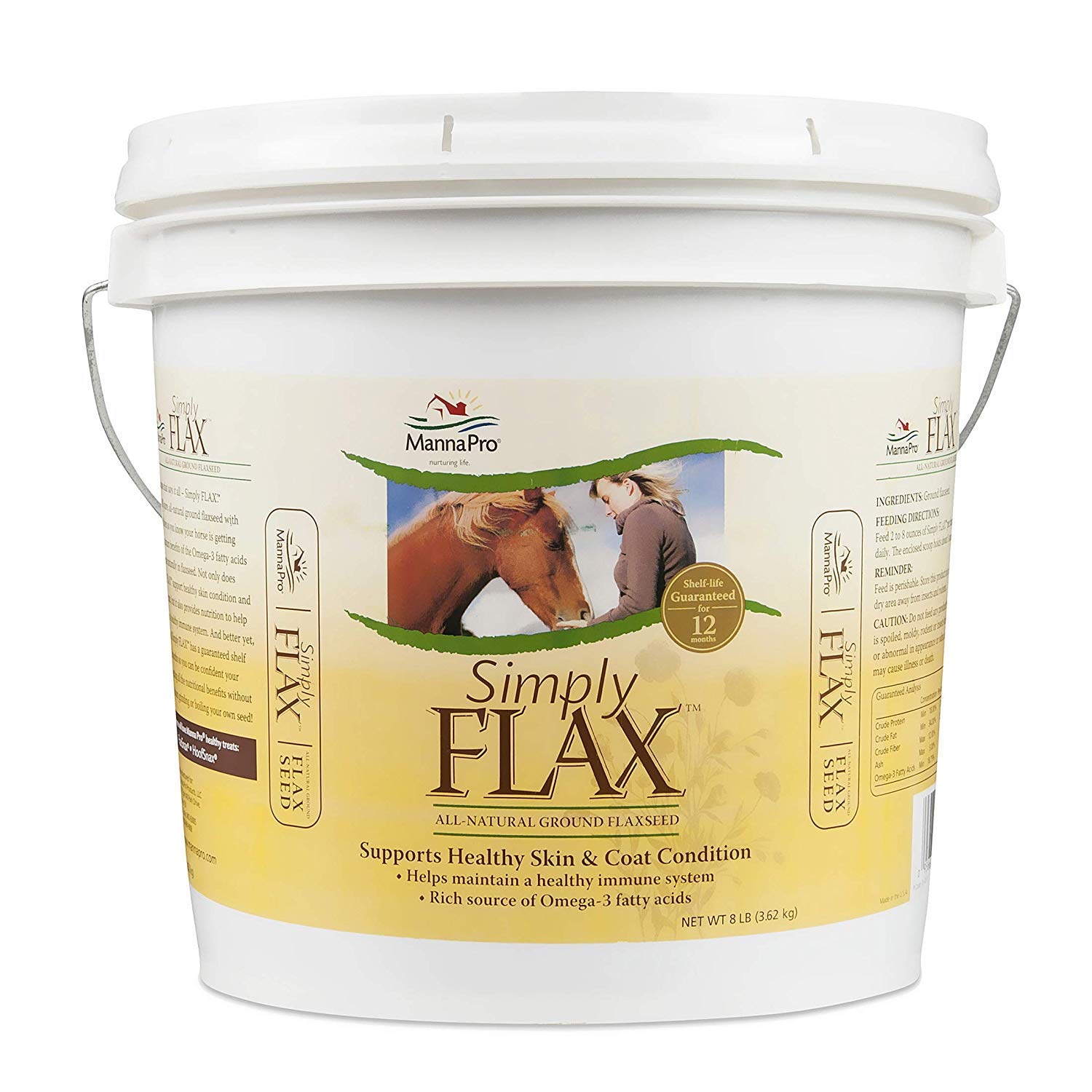Horses and Flaxseed oils
Flaxseed Oil For Horses
This article examines the use of Flaxseed oil for horses and if there are any benefits in doing that. This is what we know at the minute and in the main, it is about providing a better diet for any animal such as a horse, a dog or pets in general.
The main difference between a horse and other animals is they do not naturally produce what are called essential fatty acids. In that way, they are similar to human beings.
I would state right away though that you should never give any supplement to any animal without first speaking with your vet or veterinary clinic.
It is always better to check with the experts first and be safe rather than sorry. Some vets do recommend the use of fish oil or flaxseed oil for a variety of reasons that we will look at below. However, before dashing out any buying anything for an animal, it is worth a quick phone call with your vet.
Many horses don’t get enough of these oils from their diet and any imbalance in these essential fatty acids can affect a horse’s temperament and indeed their overall general health.
Some cereal-based foods may have a good amount of Omega-6 but very few have much if any, Omega-3 in them and it’s important to keep the balance right.
Health Benefits of Flaxseed Oil For Horses
Nutritionists have shown that there are considerable health benefits in the production of certain fatty acids, as they contain Omega 3, Omega 6 and Omega 9. The particular health benefits I have listed below:
- Helps with stiffness in joints
- Improves physical performance
- Contributes to a healthy coat
- Maintains strong hooves
- Can help working horses with their mobility
- It does promote healthy tissues, improve the immune system and the overall efficiency of the animal’s digestive system
The majority of people who use flaxseed oil for horses do so as a supplement, and in the main, they do this to help the joints. In the past, many horse owners added fish oil to their horse’s diet ass they knew that helped as a good supplement.
Flaxseed is similar in many ways to fish oil and many owners now prefer to use that instead. Owners also used to use castor oil, but that has now become very expensive as a choice and flax is used as an alternative.

Why Are Certain Fatty Acids Good?
When you hear the two words fatty and acid the mind automatically thinks this is a bad thing. The reality is that the opposite is true. What the Omega acids do is help balance the other fats in your animal’s diet.
That, in turn, improves the metabolism of your animal and makes digestion a great deal easier. So either flaxseed oil and even linseed oil have high levels of Omega 3 in particular and it is this that really is most effective as a fatty acid.
Horse Owners & Diets
You will know the diet of your horse much better than me of course. The one thing we do know is that their diet changes from when they are a pony and as they grow. You will also be very aware of the temperament of your horse and that these can range dramatically from animal to animal.
The makers of flaxseed oil claim that this can also help with adjusting that temperament, as it helps with joints, better recovery after a workout, and also makes the horse less excitable and calmer in nature.
For many years now horse owners have either been using linseed oil and more recently flaxseed oil for horses. Initially, they would have used the actual flaxseed and more recently use the oil variant.
What many people don’t realize is that linseed oil and flax oil are one and the same thing. The only difference between the two is that the flax version has been brought up to strict food hygiene standards, so as it can be sold in supermarkets and health stores.
Equine flaxseed oil is not the same as the oil you will get for humans, therefore the version for humans should not be given to any animal. I know of one man who used his own flaxseed oil to supplement the diet of his cat. He spent a long time cleaning around the house if you understand what I mean.
Dosage of Flaxseed Oil For Horses
The recommended dose of Equine flaxseed oil is 30 ml per day. All you need to do is pour this oil over the horse’s food so that makes it quick and easy. Omega 3 is not used in normal horse feeds so this oil will act as a supplement and provide that fatty acid. Many owners have stated that they have seen a difference in coat shine in as little as a couple of weeks.
Here is an example of one such type of flax supplement.
I have also seen many claims by both horse owners and by the makers of Equine supplements that this also helps with allergies such as sweet itch, also prevents cramps from forming, and even improves the quality of semen. That may be true but I could not find any evidence to support any such claims.
Why Choose Flax Over Other Oils?
Other vegetable oils available appear to be cheaper but can be heat-treated or have chemicals added (in the growing or in production) therefore they are not pure and may not deliver the same benefits as Flax. They also lack many of the proven attributes that make Flaxseed oil one of the best and most proven aids to the all-round health of the horse.
Hopefully, this has helped give you a better understanding of the benefits of flaxseed oil for horses.








You must be logged in to post a comment Login
You must log in to post a comment.